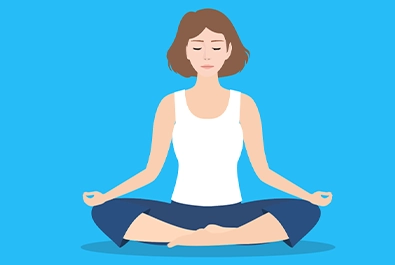
Stress and Hypertension: How to Protect Your Heart
Chronic stress can lead to high blood pressure and increase the risk of heart disease. When you’re stressed, your body releases hormones that temporarily raise blood pressure. Practicing relaxation techniques, such as meditation and deep breathing, can help. Regular exercise and good sleep also reduce stress and improve heart health. Taking breaks, enjoying hobbies, and staying connected with loved ones are great ways to manage stress. A calm mind leads to a healthier heart.
Understanding the Impact of Stress on Blood Pressure
Stress is a common factor in the modern world, and its effects on our health can be profound. When you're under stress, your body releases hormones such as adrenaline and cortisol, which temporarily increase your blood pressure. While this "fight or flight" response can be helpful in short bursts, chronic stress leads to consistently elevated blood pressure, putting strain on your heart and arteries. Over time, prolonged stress can contribute to hypertension, heart disease, and other health complications. Recognizing the connection between stress and hypertension is crucial for effective management. By addressing stress, you can protect both your mind and heart.
The Role of Relaxation Techniques in Reducing Stress
Relaxation techniques like deep breathing, meditation, and progressive muscle relaxation can be powerful tools for managing stress. These methods help activate the body's natural relaxation response, lowering heart rate and blood pressure. By practicing these techniques regularly, you can train your body to respond more calmly to stressful situations. Meditation and mindfulness practices have been shown to reduce the production of stress hormones, leading to a more balanced emotional state. Incorporating relaxation practices into your daily routine can make a significant difference in managing hypertension and promoting overall well-being.
The Power of Physical Activity in Stress Relief
Exercise is one of the most effective ways to reduce stress and lower blood pressure. Physical activity helps release endorphins, the body's natural mood enhancers, which help combat stress. Regular exercise, such as walking, swimming, or cycling, also improves cardiovascular health and can lower blood pressure over time. Exercise helps the body process stress more effectively, reducing the mental and physical toll of daily pressures. Even moderate physical activity for 30 minutes a day can make a significant difference in lowering stress levels and improving heart health. Consistency is key—make exercise a regular part of your routine for the best results.
The Importance of Sleep for Stress and Blood Pressure
Adequate, quality sleep is essential for managing both stress and hypertension. During sleep, your body repairs itself and regulates hormone levels, including those related to stress. Poor sleep or sleep deprivation increases the production of stress hormones, which can elevate blood pressure and cause further health issues. To reduce stress and maintain healthy blood pressure levels, aim for 7-9 hours of sleep each night. Creating a sleep-friendly environment by minimizing distractions and sticking to a regular sleep schedule can improve sleep quality. By prioritizing rest, you allow your body and mind to recover, leading to better stress management and improved heart health.
Taking Breaks and Engaging in Hobbies
In today’s fast-paced world, it’s easy to overlook the importance of taking breaks. Constant work and stress without rest can negatively affect your mental and physical health. Taking short breaks throughout the day helps to reset your stress levels, promoting relaxation and preventing burnout. Engaging in hobbies or activities you enjoy—such as reading, painting, or gardening—can also act as a healthy escape from daily stressors. These enjoyable activities provide a mental break, reduce anxiety, and allow you to reconnect with yourself. By making time for yourself, you’ll be better equipped to handle stress and lower your blood pressure.
Building Strong Social Connections to Reduce Stress
Social support plays a key role in managing stress and maintaining overall health. Spending time with friends, family, or support groups helps you feel connected and less isolated, which can significantly reduce stress levels. Talking about your challenges or simply enjoying time together with loved ones can promote a sense of calm and emotional well-being. Social interactions also help release oxytocin, a hormone that counteracts stress and promotes feelings of happiness. Whether it’s a chat with a close friend, family gathering, or participating in a community activity, staying connected to others helps keep stress at bay and contributes to a healthier heart.
The Importance of a Calm Mind for a Healthy Heart
Ultimately, managing stress is essential for maintaining heart health and preventing hypertension. A calm mind can lower the production of stress hormones, reduce the strain on your heart, and help keep your blood pressure in check. Incorporating daily stress-reducing practices such as deep breathing, physical activity, and socializing can have a lasting impact on both mental and physical health. The more you prioritize relaxation and self-care, the easier it becomes to handle life’s challenges without allowing stress to negatively affect your health. By protecting your mind from stress, you’re also protecting your heart and overall well-being.